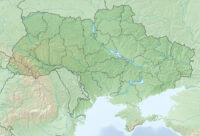Listen to UFPJ’s 2020 National Briefing Calls on the Global Days of Action on Military Spending.
The Costs of War Project at Brown University is a team of 50 scholars, including legal experts, human rights practitioners, and physicians, which uses research and a public website to facilitate debate about the costs of the post-9/11 wars. Its aim is to foster democratic discussion of these wars by providing the fullest possible account of their human, economic, and political costs.
The Institute for Policy Studies is a progressive think tank dedicated to building a more equitable, ecologically sustainable, and peaceful society. It regularly analyzes military spending and the U.S. military budget.
National Priorities Project works to promote a U.S. federal budget that prioritizes peace, economic security and shared prosperity. They have current information on the federal budget and how it affects you and your community. They analyze total discretionary spending, inequality, military spending, transfers of military equipment to local police departments, and budget trade-offs (how many teachers would one missile pay for).
Stockholm International Peace Research Institute is an independent international institute dedicated to research into conflict, armaments, arms control and disarmament. They have conducted research on arms and military expenditure since the 1960s. There website contains a wealth of data and analysis on arms production, international arms transfers, nuclear forces, armed conflicts, multilateral peace operations, arms control and disarmament, peace and international security.
The War Resisters League works nonviolently to oppose all causes of war, including racism, sexism and all forms of exploitation. Every year they publish a pie chart, “Where Your Income Tax Money Really Goes” along with materials and suggestions for actions on Tax Day.


